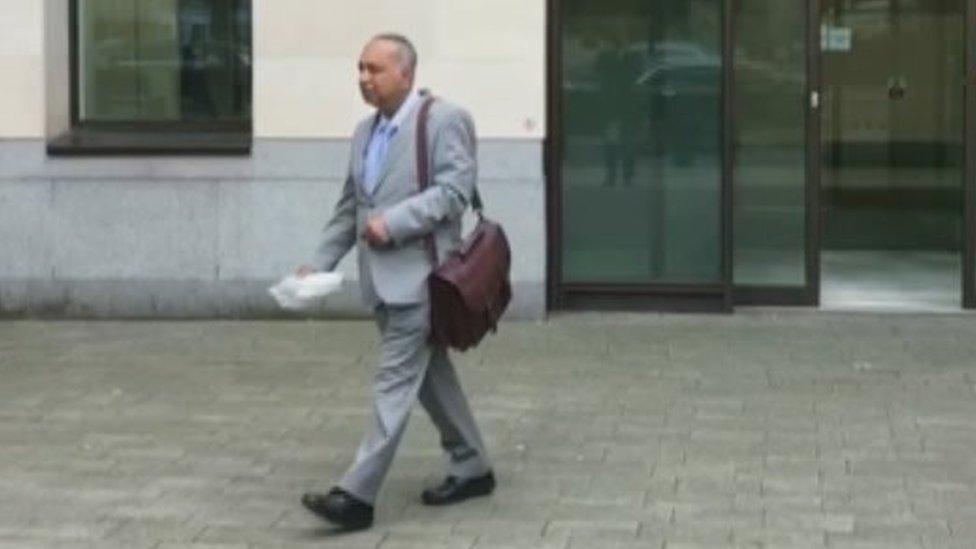Billingham GP wins extradition appeal over alleged terror links
- Published

Dr Mukul Hazarika denied claims made about his at the extradition hearing last month
A GP has won his fight against plans to extradite him to India to face terror-related allegations.
Mukul Hazarika, 75, from Queenstree surgery in Billingham, Teesside, was accused by India of being chairman of a banned Assamese separatist group.
However, at Westminster Magistrates' Court a judge said there was nothing to prove it or that he gave a speech to rebels at a Myanmar training camp.
Judge Michael Snow rejected Dr Hazarika's extradition.
Judge Snow said: "I am satisfied it would be incompatible with the defendant's rights to order his surrender."
The doctor's lawyer, Ben Cooper, previously told the hearing the case against Dr Hazarika was politically motivated by the "paranoid and autocratic" Indian state, though the judge concluded the prosecution was not being sought because of his beliefs.
The defence argued no acts of violence or terrorism could be attributed to the GP, who was vocal on a peaceful approach to the political situation in Assam.
During the case, the defence also claimed Dr Hazarika could face a long wait for trial of up to seven years had the extradition gone ahead.
Dr Mukul Hazarika worked at Queenstree medical practice within Billingham Health Centre
Dr Hazarika, a British national, has worked as a GP in Billingham since 1979, but police turned up at the Queenstree surgery last June and arrested him after India requested his extradition.
The judge rejected the Indian government's claim he was a "fugitive from justice", who - the Indian authorities - say was chairman of the separatist United Liberation Front of Assam-Independent.
'Revered and respected'
The Indian government had said it wanted to prosecute Dr Hazarika for "waging or attempting to wage war" against the Indian state and conspiracy to commit a terrorist act.
The court had heard claims he had made a speech to members of ULFAI - which is banned in India - in Myanmar in 2016, urging them to fight an armed struggle which the Indian government said amounted to "encouragement to murder".
But in papers before the court, colleagues at the GP surgery described Dr Hazarika as "revered and respected" and said his extradition would harm patients on Teesside, where he has worked long hours as a senior partner.
Staff had told the court there was a "very high likelihood" the practice would close down without him, but Judge Snow said he did not accept that.
Follow BBC North East & Cumbria on Twitter, external, Facebook, external and Instagram, external. Send your story ideas to northeastandcumbria@bbc.co.uk, external.
Related topics
- Published25 May 2022
- Published16 May 2022